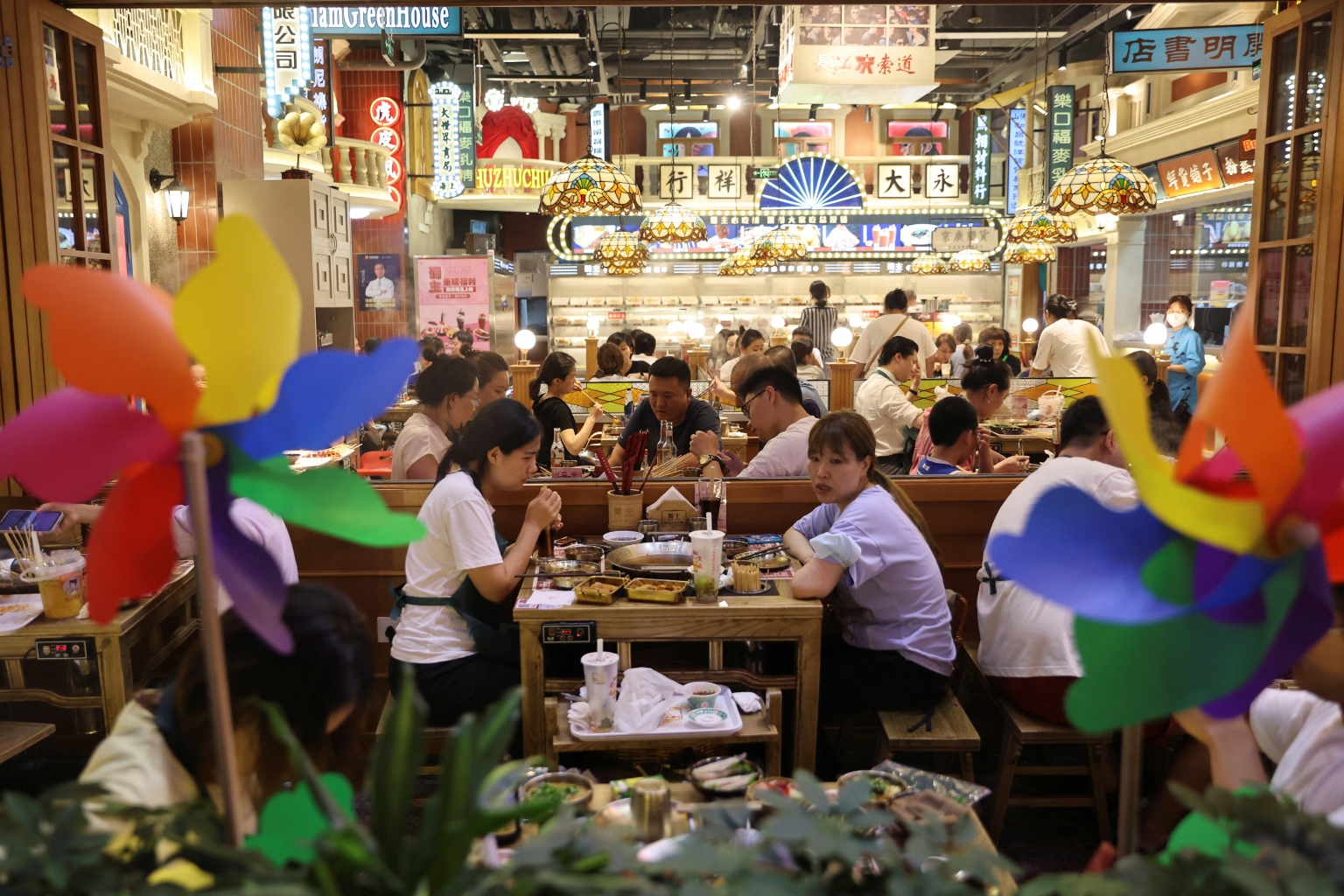Crisis of confidence stifles China's economic recovery
Sign up now: Get ST's newsletters delivered to your inbox

Customers dine at a restaurant in a shopping area in Beijing on July 25, 2022.
PHOTO: REUTERS
BEIJING (REUTERS) - Chinese beef hotpot restaurant chain Baheli, which currently makes only a third of the revenue it earned before the Covid-19 pandemic, has no intention of resuming its expansion, even if the authorities bring new infections to zero.
The problem, founder Lin Haiping said, is that consumers would not regain their confidence in a hurry, as China's stubborn pursuit of its zero-Covid-19 strategy, against a global trend of living with the virus, has upended their lives.
"All business plans are postponed," said Mr Lin, who opened his first restaurant in 2008 in the southern city of Shantou and quickly expanded to almost 200 outlets across China before closing down a quarter of them due to the pandemic.
"People feel it is difficult to make money; they are more inclined to save. They will need time to forget the pain."
His comments reflect broader concerns about a slump in consumer and business confidence in China as strict curbs aimed at stamping out Covid-19 undercut a recovery in the world's second-largest economy and dent global growth.
Analysts expect China to grow 4 per cent this year, according to a Reuters poll, a level most countries would envy but sluggish by its own standards.
It would also miss Beijing's official growth target - set this year at around 5.5 per cent - for the first time since 2015, when China was hammered by a stock market crash and capital flight.
The private sector is bearing the brunt of this economic slowdown.
Consumer confidence is hovering near record lows, private investment slowed in the first half and youth unemployment is at a record 19.3 per cent, prompting calls for more urgent government stimulus.
But already high economic imbalances are causing headaches for the ruling Communist Party as it readies for a once-in-five-years congress this autumn, where President Xi Jinping is expected to secure a precedent-breaking third leadership term.
Hundreds of millions of Chinese in dozens of cities faced various Covid-19 restrictions this year, culminating with the full April-May lockdown of Shanghai. A wide range of businesses shut their doors as well, sometimes right after being allowed to reopen, as the authorities play Covid-19 whack-a-mole.
Shanghai-based Martin Wawra, chief executive of the mobility division of Voith Turbo, a German commercial vehicle parts maker, said he needs to lay off workers to break even as the trucking industry "is suffering a lot" from Covid-19-induced logistical bottlenecks.
Private firms also worry about an evolving property crisis, rising borrowing costs in key export markets, heightened geopolitical tensions, and a sweeping crackdown on the technology and private education sectors.
China's real estate sector, which makes up roughly a quarter of its economy, has suffered a string of defaults by developers, while a growing number of home buyers are refusing to pay mortgages on stalled projects.
"China is facing a crisis of confidence," said Mr Rob Subbaraman, Nomura's head of global macro research.
"Households are reluctant to spend over fears of renewed lockdowns, potential home buyers have lost confidence in participating in presales from financially strapped developers, and private business are holding back on new investments given the darkening consumption and export outlook."
Flipping pancakes
Many economists and investors link the economic malaise to signature Xi policies, from zero-Covid-19 to the regulatory crackdown against "barbaric" growth in tech, education and other sectors.
The self-feeding private sector pessimism is fuelling calls from some prominent Chinese economists for the state to back off.
"I don't know if regulators and policymakers hear the voices of our companies," Professor Yao Yang, dean of the National School of Development at Peking University, told a mid-July online forum.
"They keep messing with the economy, like flipping a pancake. How can entrepreneurs have confidence?"


